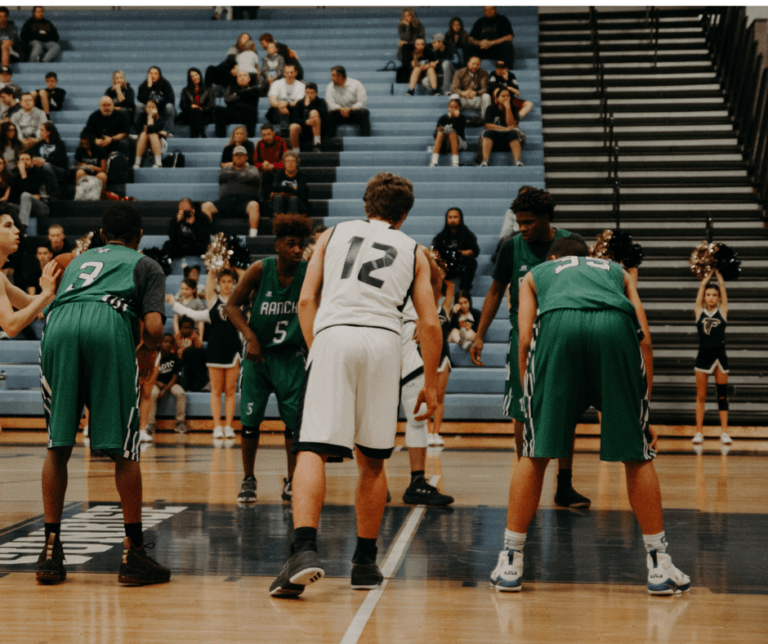
Does a student-athlete’s road to college differ from what non-athlete’s?
We discussed this topic with expert Michele Larson during a Facebook Live, when she filled us in about what student-athletes should concentrate on before they apply.
Here's what she advised-
A Holistic Method for Student-Athletes
While not an athletic recruiter, Michele does advise many students who've aspirations to play college sports.
She requires a holistic approach with them for the reason that she reminds them that “you go to college to obtain a job, and playing sports is a bonus.”
Her recommended strategy is that students first discover what they're suitable for do, then look for the colleges that might be a good fit, and THEN contact the coach.
In addition, making a genuine assessment of methods “good” you're is also important.
What's the “Hope & Surely Method?”
“We HOPE we're going to get seen” and “SURELY the coaches will notice us.”
This is a method that Michele has seen many parents and their students follow-to no avail.
Her advice is the fact that accolades in the high school level very rarely transfer towards the college level, and no one will automatically help you and spot you without proper planning and intervention.
Facts About College Sports Associations
There are two primary college sports associations:
The NCAA is very well-known.
The NAIA is not as well-known and lesser tiered, however, if you are passionate about sports, it's an organization you need to get to understand, because it has got the most money at its disposal.
Different Divisions
D1 Schools – Five primary sports that potentially hand out full-ride scholarships: Men's/women's basketball, football, volleyball, baseball
D2 Schools – Second Tier Sports – Generally not full-ride scholarships.
Coaches within this division receive a “purse” that to field all of their team
Since the amount is never large enough, coaches search for creative ways that to create these funds go so far as it can.
One of the methods is as simple as specifically searching for athletes who are armed with need-based or merit-based money and are not totally dependent upon the cash from the coach's kitty.
Michele highlights that the coach will more regularly favor students with lesser skill and much more aid money over one with better skills with no aid money.
Bottom Line: Coaches LOVE academic athletes who are armed with merit aid money.
So, a's and b's matter!
Because student athletes attending D3 colleges will not receive athletic scholarships, families determining the level of generosity of these schools will have to do the same type of research that families with non-athletes need to do, by trying to find colleges which will meet your family's financial need and/or award your student for their merit accomplishments.
What Every Senior high school Student-Athlete Must Know
When Should a sports athlete Start Preparing?
Second semester from the student's Freshman year, in other words, the earlier the greater.
Coaches aren't able to get in touch with students before their Junior year, however, there's little that says students may not get in touch with coaches before that point. In fact, says Michele, showing an interest in a specific school and getting your company name in front of a coach beforehand is important.
Sports Camps-Are They Worth It?
Most of these camp invitations are marketing tools, but if your student chooses to go, makes it in the college of his or her choice.
And since these camps are usually rather expensive, don't waste the chance: Make sure you know which coaches will be there, and ensure they will know YOU are there by sending an individual note or resume.
Signing Day/ National Letter of Intent
Different sports have different signing days, but all of them are emotionally charged and exciting for those involved.
Essentially, a National Letter of Intent states that a student will be getting a specific amount of cash to experience a specific sport in a particular school.
It is a contract, and should be treated as a result.
Once it's sent back, no further negotiations could be orchestrated.
Should students back out once the letter has been sent, he or she won't be eligible to play for just about any other NCAA team.
It is perfect for this reason why Michele highly recommends that you simply “make sure you have all of your financial ducks in a row before you send that letter in.”
The Takeaway
Playing a sport in college is a superb achievement, and may have a big effect on a student's life.
BUT, it won't necessarily have an affect on a student's career, so selecting a school that will be a fit major-wise and financially should be a first priority.
Athletic scholarships are not guaranteed for 4 years.
They could be taken away: Accidents can happen and new coaches and better players may come along, so it's better to not invest your eggs in the athletic scholarship basket.
It’s easier to cobble together educational funding from a number of sources.
So a student athlete’s path to college isn't that different than what non-athlete’s after all.
Download the Student Athlete Timeline
CONNECT WITH OTHER PARENTS Determining How you can PAY FOR COLLEGE
JOIN OUR FACEBOOK GROUP
PAYING FOR COLLEGE 101
Watch the Facebook Live with Michele Larson below and learn more about student-athletes.

